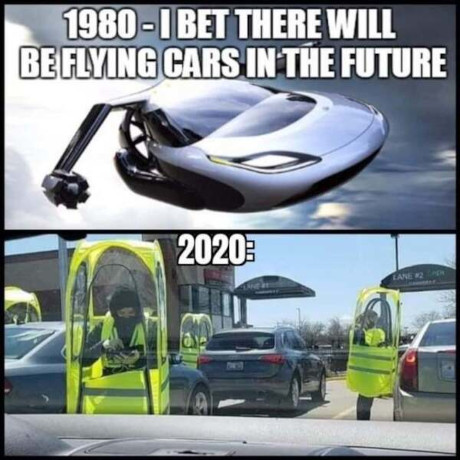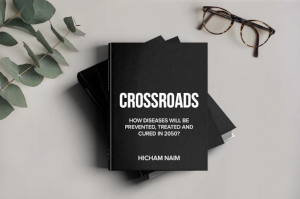title = “2050 Crossroads” date = “2022-04-01” tags = [“ATHT”, “Selftech”, “Future”, “Innovation”] description = “2050 Crossroads” banner = “img/2050crossroads.png” twitter_author = “diapasonconsult” draft = false keywords = [“Healthcare”,“Innovation”,“Regulations”,“Regulatory Consultant”, “Future”, “Futurology”, “Expert”] +++
2050 Crossroads
A book by Hicham Naim
I believe anticipation is a fundamental part of innovation.
There are plenty of futurist magazine articles that promise us a life of luxury, comfort and performance thanks to all sorts of new technology developments based on bench prototypes and university lab press releases.

This is very common with generalist ’tech’ press, that will cover vehicles and transportation, space travel, housing, leisure etc. Healthtech and medtech are no stranger to this trend (I plead guilty. My linkedin feed is full of neurotech news). And that’s justifiable. It’s not possible not to feel emotional when seeing videos of deaf patients hearing for the first time their love ones (thx cochlear implants), or accident victims with a severed spinal cord who can feel/move their lower limbs. The list goes on, and this can only trigger a biased-but-understandable techno-optimism. Techno-optimism is not bad per se. It is on the opposite a necessary quality for entrepreneurs. Entrepreneurs cannot pull through the amount of work, research, pivots and trials it takes to put an innovation on the market without a deep belief in their technology.
But techno-optimism by itself is not sufficient. Anticipation is useless if it considers only the technology and not its context.
The previsions made by Arthur C. Clarke are almost indistinguishable from magic. Other authors of Science Fiction also have applied a hard ethics for their work to associate the technology to its context. David Brin, Kim Stanley Robinson, Philip K. Dick come to mind, and the list could go on. Whether their exact previsions will manifest or not is irrelevant. What matters is that they have shown us some plausible what-ifs, in which future technology is only one element of a world and a society that produce and use this technology.
I see a parallel with the realization I witness in most of the early-stage entrepreneurs I work with. Getting the technology to work is the easy part of innovation. Innovation can only exist in a given environmental, social and economical context. Understanding how a new technology can fit into this context is what can make or break or venture / invention. The challenge with innovation is that this context is unknown - it is in the future. This is more particularly true for health-tech. Due to the regulated environment - and to the intrinsic risk levels involved in the clinical development - there is an incompressible block of time needed for the development of a new tech. From a year or two for lowest risk digital health to literally decades for higher risk products.
All innovators actually need anticipation texts to help them virtually assess their innovation in the context of a future market. The word “virtually” here is not innocent. Regardless of the jaw droppings progresses in VR, for a few years I think literature will remain a competitive option to create virtual worlds.
Looking 600 years forward, in 1931 in A brave new world, Huxley creates a dystopian - but self-consistent and rational - society, and describe some elements of its health system with significant details and depth. These cover mental public health (based on generalized used of psychoactive medicine), and of course obstetrics, sexual health, genomics and neonatalogy/pediatrics which are center-stage in the book. Albeit extreme, and maybe somehow appearing to us more unrealistic today, it is a powerful medium to raise “what-if” questions.
When it comes to anticipation about healthcare, at a much shorter timescale than Huxley’s 600 years, but much further on a fiction - science axis, one of the books that inspired me the most is the creative destruction of medicine. Written whilst “big data” was still THE buzzword, not yet “AI/ML”, it is a fascinating review of the modern medical technology arsenal and its role in the digital health revolution. It also touches on the socio-economical side of healthcare with ‘Homo digitalicus’.
Ten years later, now is probably a good time to take a different take on this exercise. It is required - if anything - to take into account the new data and evidence since its publication. Environmental crises, political crises and wars, and of course the pandemic, have reshuffled the cards.
I am so looking forward to read what Hicham Naim will do with 2050 Crossroads. This is a very ambitious task. The scope is broad and the ‘healthcare system’ is extremely complex. I love the list of pathways Hicham has identified. It gives a rational, well structured taxonomy to the field, and really entice to read the final result.

To adapt a practice from live music 8D - I’ll request some topics I hope will be “covered” in this book:
- Radical transcidisciplinarity and silo breaking . Our industry is already working on that within its own professional guilds (translational research - medical disciplines collaboration, interoperability…). But this need to go farther:
- The separation between mental health, physical health and dental health need to disappear. 2050 sounds like a reasonable horizon for that.
- This gives some hope to undercutting the snake-oil side of “non conventional” practices, and lay the ground for a fresh constructive start between the scientific side of medicine and spirituality.
- Creative arts must become an integral part of therapeutics arsenals. The evidence is here already.
- Education revolution.
- Educational institutions (and all other institutions) the world over are already experiencing environmental stress and challenges never seen before. They will have to go through deep constitutional changes to adapt to the pace of technological progress. That is true in all disciplines - but the complexity of the deep relationship between education, reseach and clinical practice makes this challenge particularly hard for medical and paramedical education.
- Professional shuffles
- Between the education revolution and the competition from AI based solutions, roles and titles will also have to be redefined entirely. Careers will navigate between employment, freelancing and entrepreneurship - and these terms themselves will have very different meaning then.
- Selftech
I trust Hicham to deliver. On top of his own experience as an innovator in the industry, I trust Hicham because he is using the right tool for the job: communities. I met him on the community he had created.
Pre-order/support this work here


